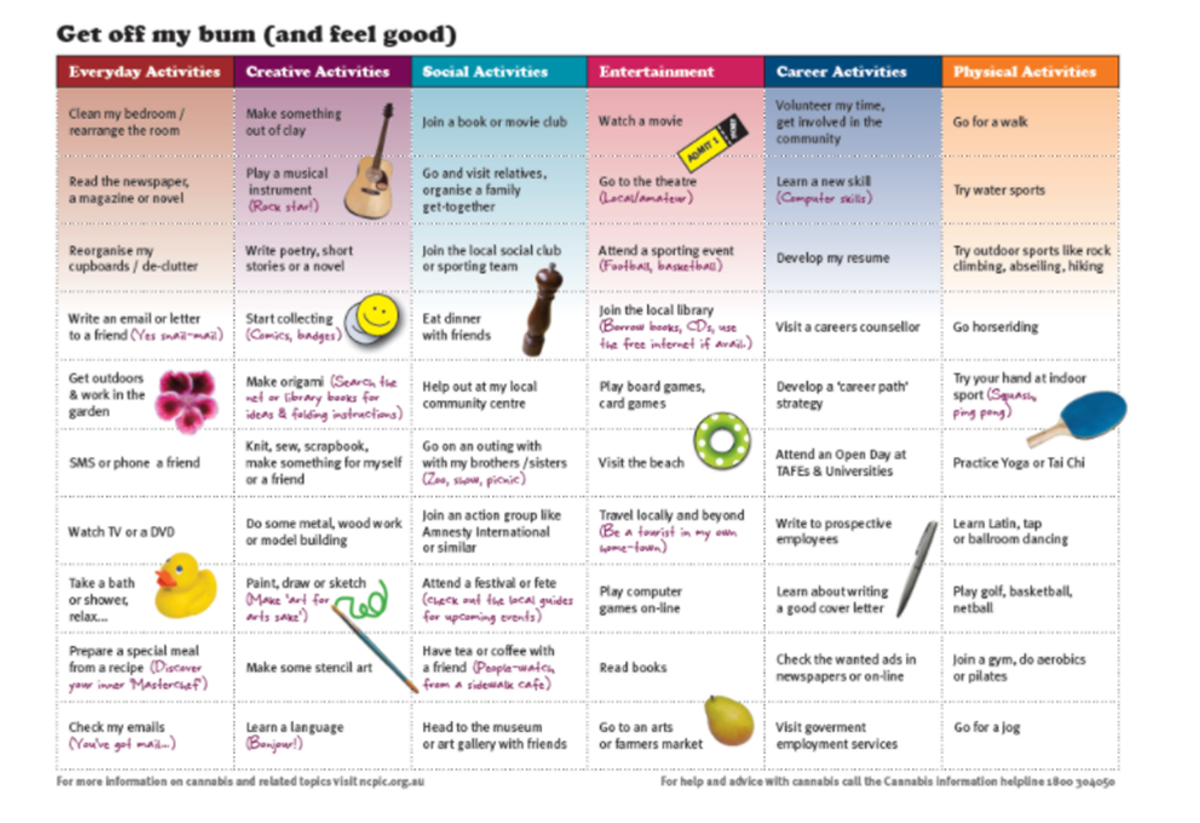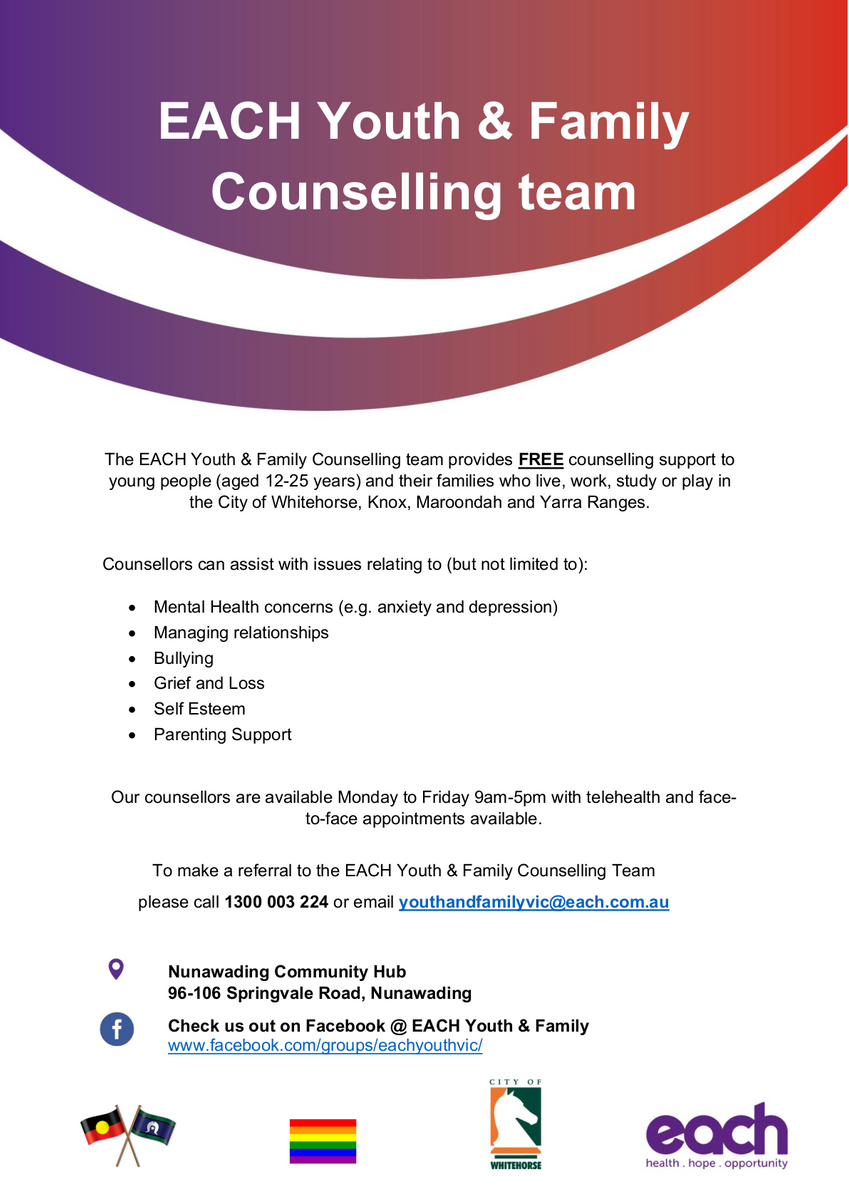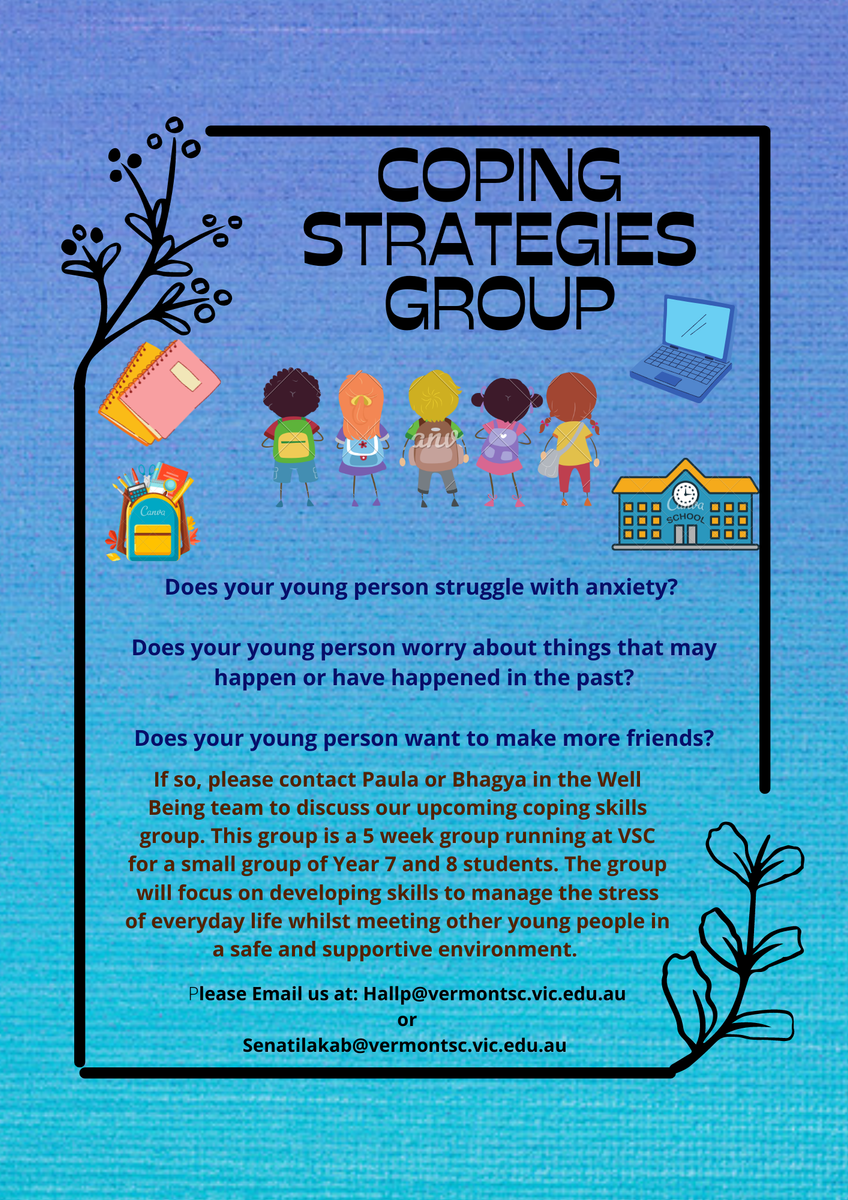Wellbeing
Vermont Secondary College

Wellbeing
Vermont Secondary College
IMPROVING FOCUS AND ATTENTION- what does the research tell us?
“Your brain can only produce one or two thoughts in your conscious mind at once. That’s it. We’re very, very single-minded.” (Prof Earl Miller, Massachusetts Institute of Technology, https://www.theguardian.com/science/2022/jan/02/attention-span-focus-screens-apps-smartphones-social-media).
Many students say that they can follow social media, check their phone messages and do their homework all at the same time. Actually research shows that when people believe they are doing several things at once, they are actually juggling. Rather than multi-tasking they’re switching back and forth. And it is actually exhausting and not very productive.
For example, say you are doing your homework, and you receive a text, and you look at it (even just a glance) and then you go back to your homework. In order to refocus on your homework, you have to remember what you were doing before, and you have to remember what you thought about it. All of this takes time and effort. It means you haven’t just lost the time that it takes to check the text but also the time it takes to refocus. It can take up to 30 minutes to recover the focus that you had when working on your homework.
A research study showed that students who sat an exam with a phone actually performed worse than students who sat an exam without a phone. Johan Hari explains to Rangan Chatterjee on “Feel better, live more” (https://podcasts.apple.com/au/podcast/228-johann-hari-on-how-to-reclaim-your-attention/id1333552422?i=1000547609183) that while those students with the phone could cheat and use the internet to complete their exam, their focus and attention was so disrupted by distractions on their phone, that they actually performed worse.
So in sum, the next time we sit down to work or study, we should remember that we are most effective when we mindfully focus on ONE task with intent. We are less effective when we try and do two things at once or are in an environment with distractions (eg technology) because our mind is full or cluttered.
IMPROVING FOCUS AND ATTENTION- what can you do to support your child?
The article above was posted on teams for students this week.
As a parent or family member, how can you help support your child at home and their ability to maintain focus and attention?
Here are some strategies to try as a family:
PHYSICAL ACTIVITY AND MENTAL WELLBEING
Winter and the colder months can make us feel stuck, heavy and low on energy.
We can get into a state where we can’t be bothered and procrastinate even the simple tasks. Just finding 10-15 minutes each day to MOVE can be very beneficial for your wellbeing. It can be as simple as walking to school, throwing a basketball or football around with a family member or doing a 10 minute yoga on you tube (whatever takes your fancy).
Physical activity can lift your mood, reduce stress, increase energy, improve concentration and improve sleep quality (as well as the physical benefits). Research shows us that physical activity can significantly reduce anxiety and distress. It can provide a distraction from difficult thoughts and feelings you might be experiencing, and also releases the feel good chemicals, endorphins, in the brain.
Often however, a vicious cycle can develop between low mood and avoidance (that is, not doing any activity), and this can prolong and worsen low mood. Put simply, when we feel down we don’t want to do anything BUT this is when it is most important. Planning and scheduling physical activity can be useful to increase the chance that we will be active. Thinking ahead about what we can do to get our bodies moving for the upcoming week can be effective. Try planning what you will do, when you will do it, where you will do it and who will you tell. Rate your mood before and after each activity that gets you moving and doing something.
Orygen, the centre for youth mental health, (https://www.orygen.org.au/) provides some suggestions about different ways you can get yourself moving and active.







